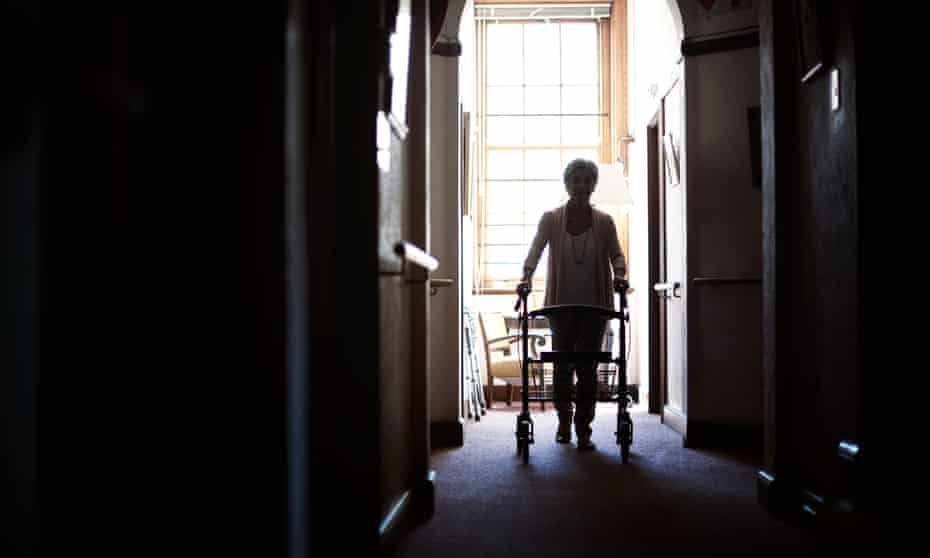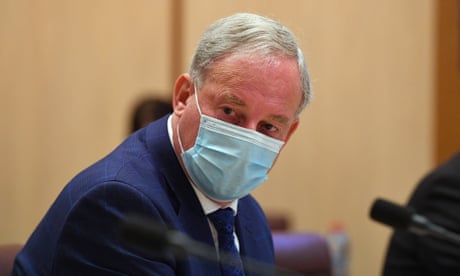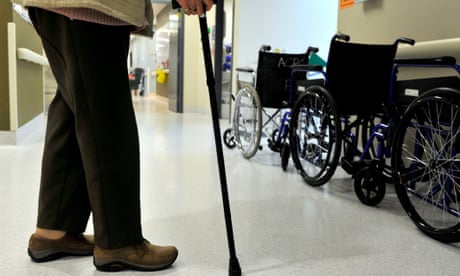Extract from The Guardian
The Morrison government has wreaked carnage in the sector but without an alternative it may not matter at the polling booth

One would like to think so, given the carnage the federal government has wreaked in the sector.
On Wednesday, Senate estimates heard that so far in 2022, more than 700 aged care residents have perished from Covid, a toll already greater than throughout all of last year.
In response to questioning, the aged care services minister, Richard Colbeck, said that “the performance in managing Covid-19 has improved” and then blamed Labor for bullying him.

Some might object he hasn’t been bullied enough.
Colbeck
says any suggestion he has “put his sporting commitments ahead of the
health and wellbeing of senior Australians … [was] completely misguided”
because his attendance at a Test was “part of his commitments as
minister for sport and senator for Tasmania”; he also says he had
performed other Covid-related duties on that day and the “Test was a
day-nighter [that] did not start until late afternoon”.
Nevertheless,
the fact remains that, as the wave of fatalities swelled in
mid-January, Colbeck declared himself too busy to attend a committee on
the crisis … and then spent three days at the cricket.
At least Nero gave the Romans some music.
Everybody ages. If they don’t need support now, either for themselves or their relatives, one day they will.
At the polls, they’ll vote accordingly, right?
Well, it’s not quite so simple.
The Adam Smith Institute, a neoliberal thinktank, recently released a paper arguing that to “turbocharge scientific discovery and give all humanity a greater stake in space exploration”, the moon should be privatised (yes, really!).
Back here on planet Earth, most of us recognise that while Elon Musk might do well from unregulated market forces, the weak and the poor do not.
Yet for decades, Australia has relied on Adam Smith’s invisible hand to look after elderly people, with John Howard’s Aged Care Act in 1997 inviting big business to make money from the nation’s most vulnerable people.
The results have been much as you’d predict. The report from the royal commission into aged care quality and safety described an absolute horror show: residents lying in their own filth, widespread malnutrition, rampant over-medication, sexual and physical assaults, underpaid and undervalued staff and much else besides.
The prime minister launched that inquiry in 2018, explaining, in characteristic Morrisonese, that he wanted to be “fair dinkum” about understanding the full extent of the problems.
But here’s the thing, since 1997, we’ve had no less than 18 major reviews and investigations into aged care.
In other words, everyone knows the system’s stuffed – and they have for a long, long time.
Yet that awareness hasn’t translated into political action.
In 2020, when Catholic Health Australia polled voters in Eden Monaro, 84% of respondents described aged care as “in crisis”.
Yet, asked to list the issues that mattered to them, less than 4% nominated the treatment of elderly people.
We might blame an innate reluctance to dwell on old age and the various indignities it brings.
But actually, there’s nothing inevitable about it at all. Other cultures, in other times, have venerated seniors, taking collective pride in the respect they accord to elderly people.
It’s more accurate to attribute our indifference to the priorities of an atomised society, in which the value of an individual decreases precipitously once they’re no longer consider an economic asset.
And, just possibly, attitudes are changing.

The Covid-19 pandemic wreaked havoc in aged care. But it also showed that the vast majority of the public wanted to safeguard older citizens and were prepared to alter their behaviour (by getting vaccinated, wearing masks, etc) to do so.
In particular, younger Australians – many of whom weren’t necessarily at great risk themselves – accepted significant sacrifices in the fight against the virus.
Having done their bit to protect their grandparents, when they get to the polling booth, they may well be inclined to punish Colbeck and Morrison for not doing enough.
Of course, much will depend on the willingness of Labor to offer a palpable alternative.
In Victoria, the stark contrast between a high proportion of Covid cases and deaths in private facilities and the much less affected publicly run homes shows what could be possible.
So far, Anthony Albanese hasn’t offered definite promises about increasing wages to the desperately underpaid staff in the sector.
A bold alternative policy would go a long way to putting aged care on the electoral agenda.
The hundreds of dead deserve at least that.
No comments:
Post a Comment